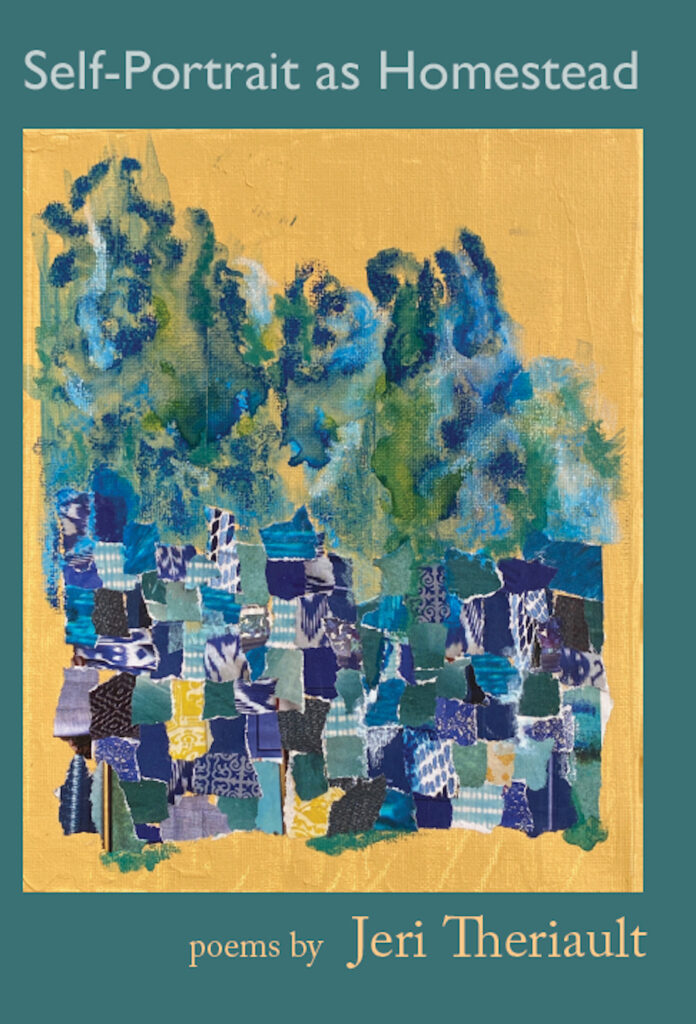
SELF-PORTRAIT AS HOMESTEAD presents various speakers as the accumulated voice of one character who is girl—woman—mother—grandmother. These poems are fully inhabited by real people like my grandmother and other members of my family. I am especially in love with the “girl cousins” who show up in several poems. Here are many incidents, places and people who come from my life. Here is my dad. Here is the upstairs apartment where my grandparents lived. These voices intentionally blur the narrative, which is not linear, but rather a collage of experience.
The collection’s title reflects my focus on family and heritage. “Homestead” is a motif as suggested by street addresses (“12 Gold Street” and “2 Moor Street”). The homestead also becomes the “household,” a woman’s place, as in “Route 201, Fairfield” and “Wife as Beekeeper: 1955.” In this sense the collection suggests the confinement by role, home and religion of women characters, and their pushing against those constraints.
This character is a girl-woman who carries on, or as Leslie Ullman says, reclaims “the flare of self-ness that has been tamped in women over many generations.” SELF-PORTRAIT AS HOMESTEAD represents a woman’s journey. We might even call her a heroine, but she would balk at that designation.
Here’s a blurb from Leslie Ullman: These deft, spare poems reclaim the flare of self-ness that has been tamped in women over many generations, and their fresh word-play and inventive forms make their renditions of grandmother, mother, and self-as-girl-morphing-to-elder all the more arresting. Every gesture flies off the page in its caress of language, also evoking the iconic loneliness of women in the speaker’s past and in history itself. The result? A redemptive empathy for self and ancestor, the well-earned gift of a generation of women who have paid the price of breaking free and now step forth to bear honest witness and break old patterns. Such stories cannot be told often enough. These poems do so bravely and in searingly honed phrases and images.
(M)OTHER, my chapbook from Dancing Girl Press, is available at last! It’s a bit spooky having this family portrait as the cover art. I’m the pouty girl to the right of my father. Here’s the ordering info.
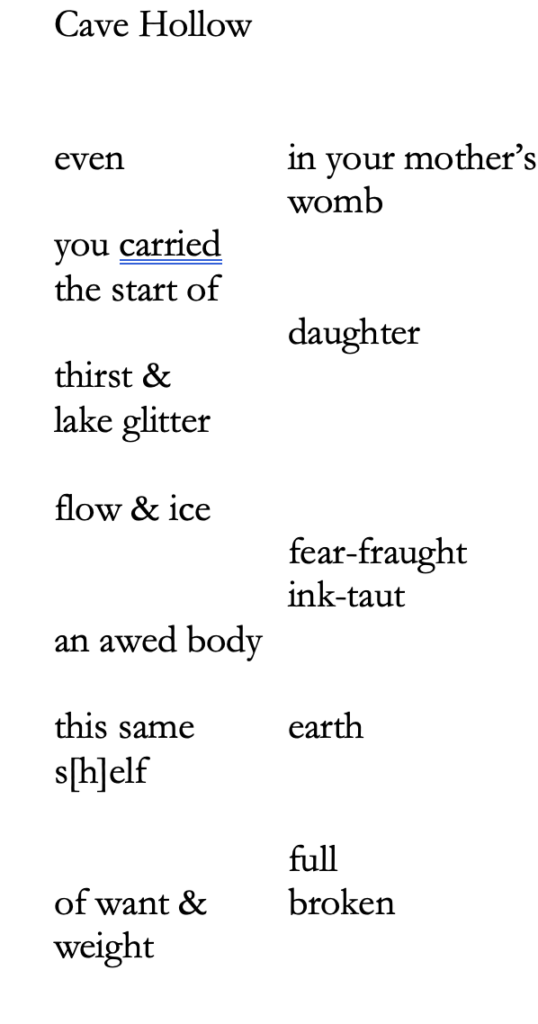
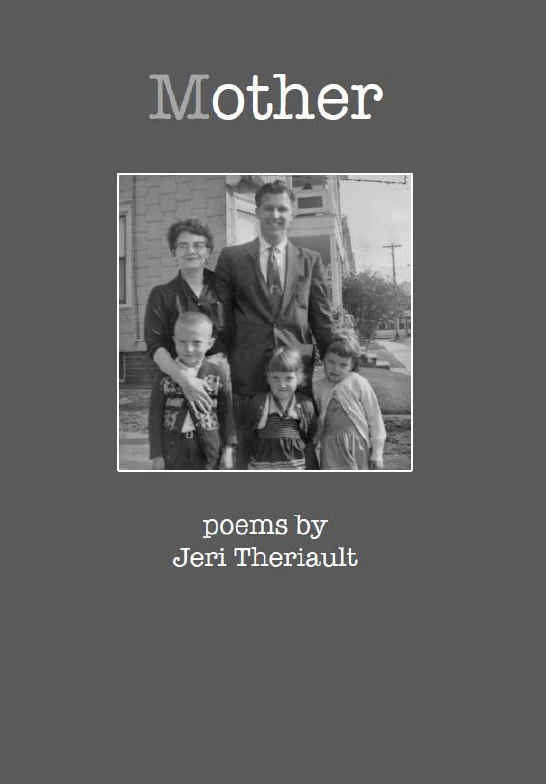
WAIT: Poems from the Pandemic
In December, 2020 I sent a proposal to Littoral Books, asking publishers Agnes and Jim Bushell if they’d be interested in an anthology of pandemic writing by Maine poets. Yes! was their emphatic reply. WAIT: Poems from the Pandemic is the result, an anthology of poetry and art by sixty-five Maine poets and visual artists created in response to the pandemic of 2020-21. Collected by editor Jeri Theriault, the art and poetry work together to reveal the feelings, frustrations, desires, and suffering all of us experienced during this time. Passionate and contemplative, angry and hopeful, sorrowful and humorous, intelligent and articulate, these poets and artists show us, as poet laureate Baron Wormser writes, “a transfiguring vision – what the pandemic felt like from the inside.” An “essential work,” an “invaluable book,” Wait “brings us face-to-face with what it is to be human.”
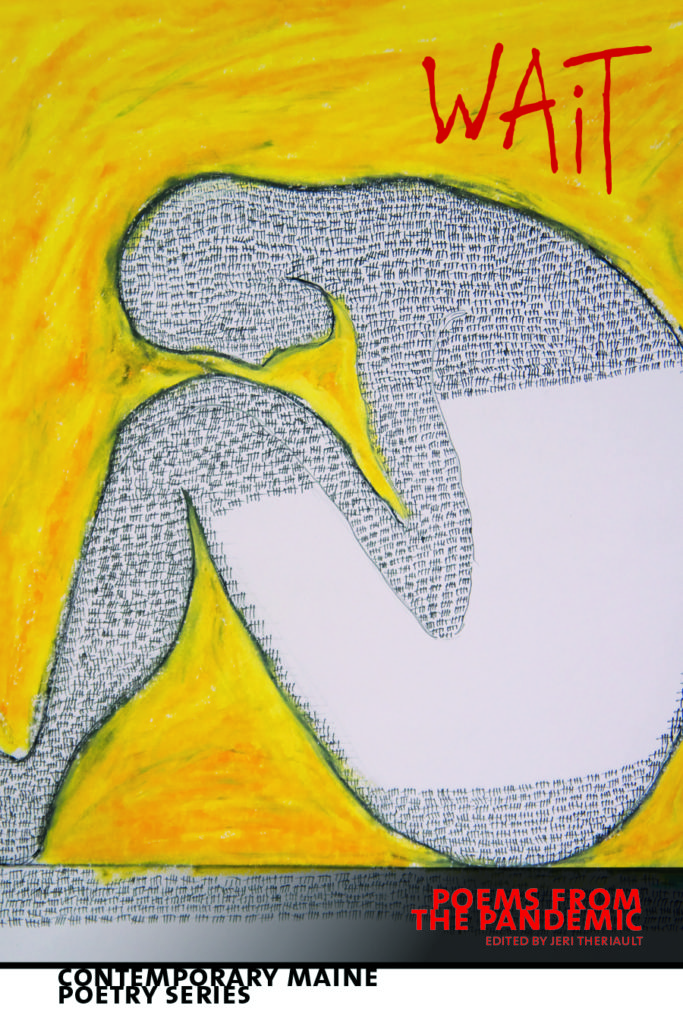
Bob Keyes in The Portland Press Herald: Some poets wrote about their heightened observations of birds, their daily walks, and the regular news updates with Maine CDC Director Dr. Nirav Shah. Others wrote about a loved one dying, alone and miles away from family, about reckoning, and about “the tenacious promise of hope.” There is passion and anger on these pages – and sympathy, humor, and all the other emotions that connect people during a shared, global crisis.
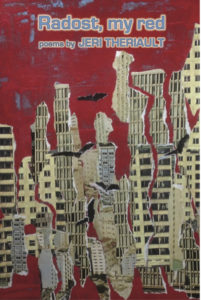 Praise for Radost, my red:
Praise for Radost, my red:
In the words of poet Christopher Bursk (Author of The Boy with One Wing), Jeri Theriault’s new collection Radost, my red (Moon Pie Press, 2016) embodies “being alive in a world of suffering and mystery and beauty.” There are broken places that reach “deep/into the dark,” but there is also whimsy – Cinderella in a glass dress, Galatea making a fast escape. The poet explores desire and dream, loss and love, with a lively cast of female characters – aunts and a grandmother, a beloved teacher, Aphrodite and Barbie, Mrs. Robinson and Daphne. A love of language and a courageous resilience shine through these poems.
Betsy Sholl (author of Otherwise Unseeable) writes: Of the many pleasures in Jeri Theriault’s Radost, my red, perhaps the one I treasure most is her sense of language. That element we use and misuse every day is reinvigorated in these poems, its beauty renewed and made palpable, as when she speaks of how the word banish “swishes like a skirt, its near-hiss a broom/whisking out the door.” Her English draws into its wide musical range the sounds of Eastern Europe, and the tonalities of her French Catholic childhood. In Theriault’s deft hands—or ears—this language once again makes us human, becomes a marvelous lens through which to view our humanity. She sees into the ironies and complexities of our cultural narratives, shows us afresh “the stews and steeps of seasons,” and takes us to those rich mysteries that deepen and enlarge our lives.
Published 2016 by Moon Pie Press.
Praise for In the Museum of Surrender 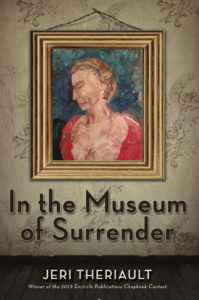
Dennis Daly (Author of The Custom House) states in his review at Boston Area Small Press and Poetry Scene: “Generating strength from weakness tricks the gatekeepers of our fanciful lives, changes their logic, and opens a multiplicity of doors. Through the magic of her empowering poems Jeri Theriault explores where each of these archival doors leads and conveys both soul-searching wonderment and buffeting sadness. Her chapbook collection, In the Museum of Surrender, is well titled and chock full of antiquities and miscellany.”
Gary Lawless (Co-owner, Gulf of Maine Books; author of Caribouddhism): “As we move through the museum of surrender-the rooms of loss, of grief, the poet gives us resilience, joy, and roots reaching ‘deep/into the dark’ … and we want to be there when she sings her songs of strength and beauty, songs of life, songs for the living.”
Rhea Côté Robbins (Author of Down the Plains and Wednesday’s Child.): “Sit and listen, you can hear the wind blowing through the poems, longing. The future being drawn, defined. Doors close and the words become energy. A fox waits for your eyes to see. Renewal, rain cleansed, rejuvenation; resolve-a question and answer. Raw, rational, rationale. Dare to enter this world of sublime impressions.”
Winner of the 2013 chapbook contest at Encircle Publications.